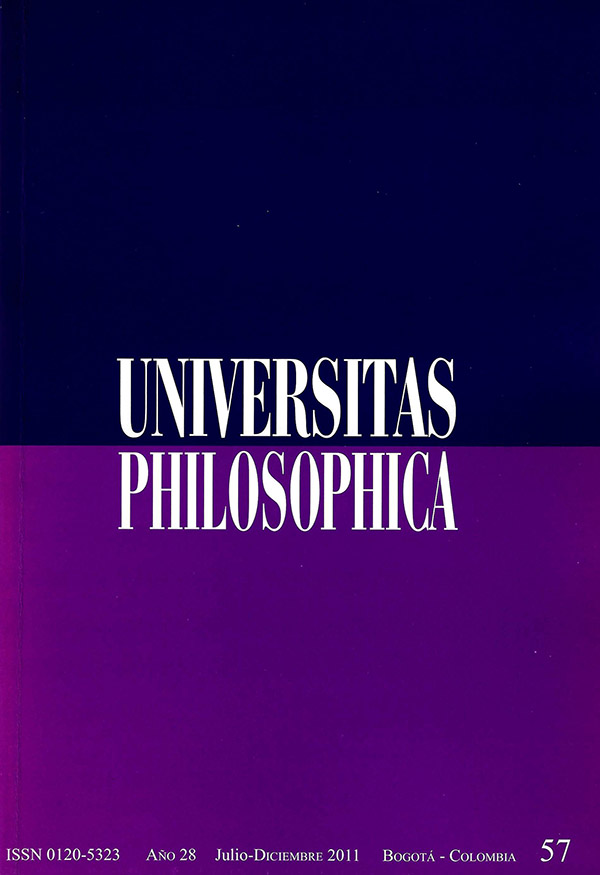Resumen
En el presente trabajo examinaremos el primer escrito del joven Schelling de 1795, Vom Ich als Princip der Philosophie oder über das Unbedingte im menschlichen Wissen, a la luz de la intención programática de desarrollar una “ética a la Spinoza”. Este propósito no sólo implica ir más allá de la intención metodológica de la filosofía crítica de inspiración kantiana, sino que busca atender también de manera plena a la exigencia humana de alcanzar un saber incondicionado, que vaya más allá de los presupuestos metodológicos y temáticos tanto del criticismo como del dogmatismo precrítico. Para atender a este llamado del idealismo, el joven filósofo buscó armonizar el clamor de la libertad con la naturaleza de lo absoluto, según Spinoza. Pero esta armonía no la encontró en el despliegue de una simple exigencia teórica, sino más bien en la plena realización práctica de aquello que concebimos y experimentamos como lo incondicionado. Esta realización se cumple en la articulación del yo, lo absoluto y la libertad.La realización de esta articulación determinó el rumbo y las posibilidades de la filosofía en el siglo XIX.
Esta revista científica se encuentra registrada bajo la licencia Creative Commons Reconocimiento 4.0 Internacional. Por lo tanto, esta obra se puede reproducir, distribuir y comunicar públicamente en formato digital, siempre que se reconozca el nombre de los autores y a la Pontificia Universidad Javeriana. Se permite citar, adaptar, transformar, autoarchivar, republicar y crear a partir del material, para cualquier finalidad (incluso comercial), siempre que se reconozca adecuadamente la autoría, se proporcione un enlace a la obra original y se indique si se han realizado cambios. La Pontificia Universidad Javeriana no retiene los derechos sobre las obras publicadas y los contenidos son responsabilidad exclusiva de los autores, quienes conservan sus derechos morales, intelectuales, de privacidad y publicidad.
El aval sobre la intervención de la obra (revisión, corrección de estilo, traducción, diagramación) y su posterior divulgación se otorga mediante una licencia de uso y no a través de una cesión de derechos, lo que representa que la revista y la Pontificia Universidad Javeriana se eximen de cualquier responsabilidad que se pueda derivar de una mala práctica ética por parte de los autores. En consecuencia de la protección brindada por la licencia de uso, la revista no se encuentra en la obligación de publicar retractaciones o modificar la información ya publicada, a no ser que la errata surja del proceso de gestión editorial. La publicación de contenidos en esta revista no representa regalías para los contribuyentes.


